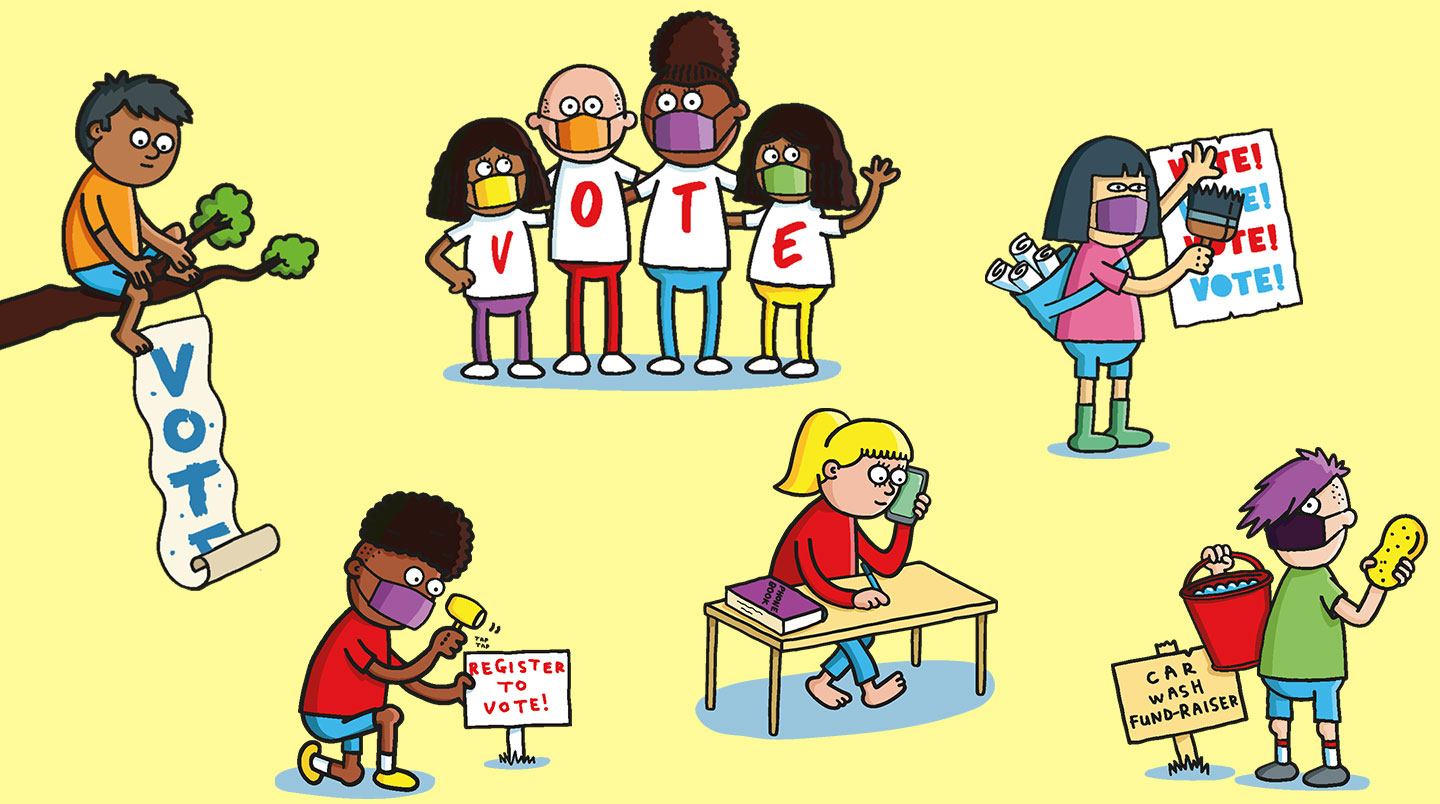Find out who is running in your local, state, and national elections—and what those candidates stand for—at ballotpedia.org (under “2020 elections” in the navigation bar) and vote411.org. Compare the presidential candidates’ views at 2020election.procon.org. And visit votesmart.org/elections/ballot-measures to read about proposed changes to your state’s constitution. (These sites are nonpartisan, which means they do not side with any political party.)
Common Core: RH.6-8.1, RH.6-8.2, RH.6-8.4, WHST.6-8.4, RI.6-8.1, RI.6-8.2, RI.6-8.4, W.6-8.4, SL.6-8.1, SL.6-8.6
NCSS: Individuals, Groups, and Institutions • Power, Authority, and Governance • Civic Ideals and Practices

